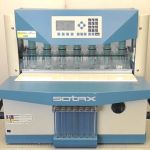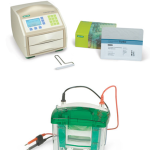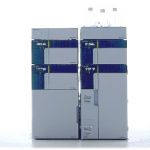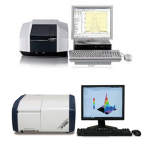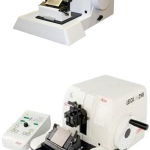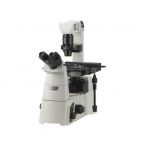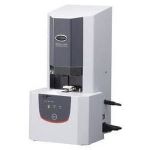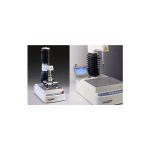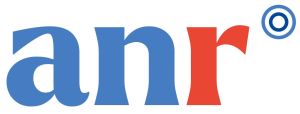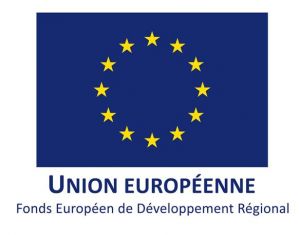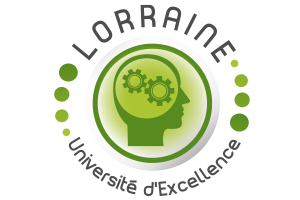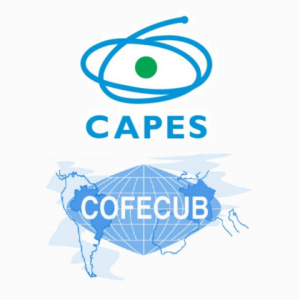Research unit CITHEFOR
Cibles thérapeutiques, formulation et expertise préclinique du médicament
Bâtiment AB, Campus Brabois-Santé
9 Avenue de la Forêt de Haye, BP 20199
54505 VANDOEUVRE-LES-NANCY
FRANCE
Caroline GAUCHER
caroline.gaucher [at] univ-lorraine.fr
Nathalie DEGOUSEE
nathalie.degousee [at] univ-lorraine.fr
The CITHEFOR research unit, focused on an integrated approach of pharmaceutical development, offers innovative drug formulations (nano/microparticles, hydrogels, etc.) and advanced therapy medicinal products (derived from human cells and matrices) for the controlled release of fragile active ingredients.
The research unit focuses on the crossing, protection or restoration of tissue barrier functions, in the context of inflammatory and ischemic cardiovascular pathologies and tissue (re)vascularization. CITHEFOR's strategy is based on a pharmaceutical R&D approach including quality control, optimized processes and industrial/clinical scale-up, and compliance with usage and regulatory constraints, while:
- pooling our expertise in the formulation and pharmacological evaluation of biomedicines, as well as their formulation excipients, of plant or human origin, and their active ingredients in complex mixtures modulating inflammation, vasoreactivity, angiogenesis and cell recruitment through chemotaxis;
- proposing a definition based on Pharmacopoeia standards and an integrated characterization (in vitro, ex vivo and in vivo) of the properties of the active ingredients and biomaterials developed;
- proposing co-administration/co-encapsulation of active ingredients, as well as new delivery routes in the form of functionalized 3D networks for barrier crossing and tissue regeneration.
Supervising body(ies)
Key numbers of the unit
- 13 Lecturers and professor
- - Staff scientists
- 6 Qualified research supervisors (HDR)
- 4 Technical and administrative staff
- 7 / 5 phD students /
Postdocs students - 80 Publications ACL
2019-2024
Research topics / Know-how
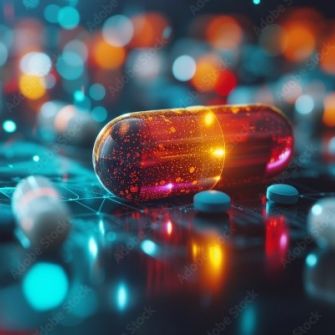
CITHEFOR
CITHEFOR's focus is on developing innovative formulations of active ingredients that modulate inflammation (anti-inflammatories, anti-oxidants, chemoattractants) and/or vasomotricity (modulators of the renin-angiotensin-aldosterone system, nitric oxide donors) in order to improve their bioavailability (protection and crossing of physiological barriers) and/or restore barrier and tissue functions.
The main therapeutic applications are in chronic inflammatory and ischemic pathologies (stroke, obliterative arteriopathy of the lower limbs, ischemic heart disease, etc.) and tissue revascularization (wound healing, bone filling).
Contact(s) :
Caroline GAUCHERcaroline.gaucher [at] univ-lorraine.frAnne SAPIN-MINETanne.sapin [at] univ-lorraine.fr
Staff

Caroline GAUCHER Director UL
Anne SAPIN Co Director UL
Nathalie DEGOUSEE Administrative Manager UL
phD students
- 4A these 2024MELISSA COLINLes agonistes biaisés du récepteur AT1 de l'angiotensine II comme régulateurs de la circulation cérébraleImpact of an Angiotensin II Type 1 Receptor Biased Agonist on Cerebral Circulation: Preclinical Insights into Health and DiseaseDirecteur de thèse :François DUPUISCo-directeur de thèse :Sebastien FOULQUIERCo-tutelle :Université de Maastricht
PAYS-BAS - 3A these 2024NATHAN WISNIEWSKIDéveloppement d'un substitut vasculaire acellulaire d'origine humaine recouvert d'une matrice de gelée de Wharton fonctionnalisée pour le recrutement de cellules : caractérisation fine et évaluation ex vivoDevelopment of an acellular vascular substitute of human origin coated with a functionalized Wharton's jelly matrix for cell recruitment: fine characterization and preliminary ex vivo evaluationDirecteur de thèse :Caroline GAUCHERCo-directeur de thèse :Reine EL OMAR
- 2A these 2025MORGANE FERRYCD Développement d'un test de flux latéral pour la quantification de cannabinoïdesCD Development of a lateral flow assay for the quantification of cannabinoidsDirecteur de thèse :Anne SAPIN-MINETCo-directeur de thèse :Arnaud PALLOTTA
- 2A these 2025ALAA BZALCD Biomatériau Innovant d'Origine Humaine Fonctionnalisé pour la Régénération OsseuseCD Innovative Functionalized Human-Origin Biomaterial for Bone RegenerationDirecteur de thèse :Vanessa MOBYCo-directeur de thèse :Reine EL OMAR
Pas de soutenance pour le moment
- NATHAN WISNIEWSKIDéveloppement d'un substitut vasculaire acellulaire d'origine humaine recouvert d'une matrice de gelée de Wharton fonctionnalisée pour le recrutement de cellules : caractérisation fine et évaluation ex vivoDevelopment of an acellular vascular substitute of human origin coated with a functionalized Wharton's jelly matrix for cell recruitment: fine characterization and ex vivo evaluationDirecteur de thèse :Caroline GAUCHERCo-directeur de thèse :Reine EL OMAR
- CELINE DELAITRECaractérisation pharmacologique et fonctionnelle de ligands traceurs du récepteur AT1 de l'angiotensine II pour l'étude de nouvelles approches thérapeutiquesPharmacological and functional characterization of angiotensin II AT1 receptor tracer ligands for the study of new therapeutic approachesDirecteur de thèse :François DUPUISCo-directeur de thèse :Sandra LECAT
- CELIA BOUKOUFICaractérisation des propriétés catalytiques de nanoparticules d'or immobiliséesCharacterization of the catalytic properties of immobilized gold nanoparticlesDirecteur de thèse :Igor CLAROTCo-directeur de thèse :Ariane BOUDIER
- MARGAUX BERTHOUMONITORING DE S-NITROSOTHIOLS DANS DES MATRICES BIOLOGIQUES GRACE A DES SONDES NANOSTRUCTUREESS-NITROSOTHIOLS MONITORING IN BIOLOGICAL MATRICES BY NANOSTRUCTURATED PROBES.Directeur de thèse :Igor CLAROTCo-directeur de thèse :Arnaud PALOTTA
- JUSTINE BONETTIPotentiel thérapeutique des S-nitrosothiols dans la prévention de l’athérosclérose : Modulation de la métaplasie des monocytes et cellules musculaires lisses en cellules spumeusesTherapeutic potential of S-nitrosothiols in the prevention of atherosclerosis: Modulation of monocytes and smooth muscle cells metaplasia into foam cellsDirecteur de thèse :Caroline GAUCHERCo-directeur de thèse :Alfonso POMPELLACo-tutelle :Università di SIENA
ITALIE - JORDAN BEURTONOptimisation physicochimique de films fonctionnalisés pour des applications cardio-vasculairesPhysicochemical optimization of functionalized films for cardiovascular applicationsDirecteur de thèse :Ariane BOUDIERCo-directeur de thèse :Philippe LAVALLE
Equipment
The unit has many analytical, experimental and formulation tools that allow in particular:
- To develop innovative formulations
- To characterize the formulations
- To quantify the substances of interest in biological media
- To evaluate their cellular toxicity
- To observe a potential pharmacological effect
In addition to the equipment listed above, the Animalerie du Campus Brabois-Santé (ACBS) also has a number of other items of equipment: membrane permeability study system, implantable sensors, isolated organ tank system, isolated and perfused vessel chambers, etc.
- Trans-Blot Turbo and Mini-PROTEAN 3 Electrode Assembly
- Stratagene MX3000P
Services
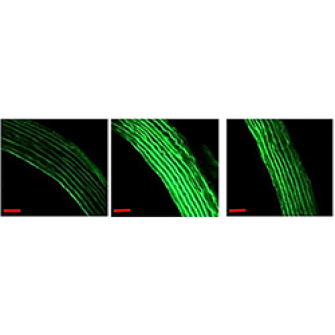
Histological platform
This platform enables histological and immunohistological/fluorescence studies of tissues (paraffin-embedded, frozen), cells (fixed or live), and biomaterials. Microscopic analyses are performed using optical microscopy (classic, phase contrast, or polarized) or fluorescence microscopy.
Contact(s) :
Reine EL OMARreine.el-omar [at] univ-lorraine.fr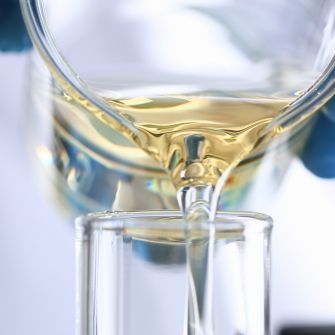
Formulation and pharmaceutical technology
This technical platform enables the manufacture and characterisation of pharmaceutical dosage forms. The researches applie more particularly to innovative formulations (nano-, micro-particles, hydrogels or other three-dimensional networks) or to conventional dosage forms (tablets, powders, emulsions, etc.).
Contact(s) :
Anne SAPIN-MINETanne.sapin [at] univ-lorraine.fr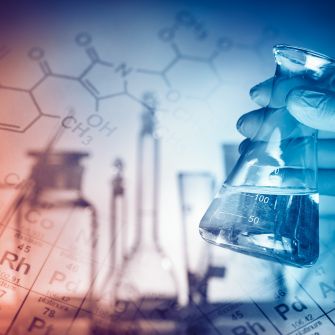
Bioanalysis and quality control
The physico-chemistry platform offers spectrophotometric (UV-Vis, fluorescence) and separation (HPLC) analytical tools necessary for the development of analytical and bioanalytical methods for the evaluation of drug candidates and innovative formulations (nano and micro- particulates).
Contact(s) :
Arnaud PALLOTTAarnaud.pallotta [at] univ-lorraine.fr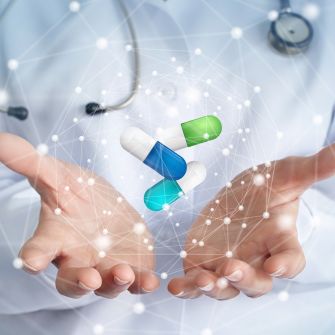
Preclinical expertise
Preclinical expertise (telemetry, isolated organs: arteries, intestines, etc.) is outsourced to the Animal Center Campus Biologie Santé: pharmacodynamics, mechanisms of action, pharmacokinetics, identification of therapeutic targets (nitrosation of proteins, including receptors for angiotensin II).
Contact(s) :
François DUPUISfrancois.dupuis [at] univ-lorraine.fr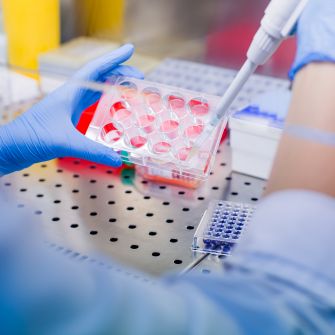
Cell biology platform
The cell / molecular biology platform offers models of stress (oxidant, ferroptosis), inflammation, wound healing and intestinal barrier for the evaluation of the mechanism of action (redox biomarkers, gene expression, protein identification) of drug candidates and their formulations.
Contact(s) :
Caroline GAUCHERcaroline.gaucher [at] univ-lorraine.fr
Networks / Funding / Partners
- Contrat ANR-PRC (ANR-23-CE18-0017), 2024-2026, NoToBAlz, Development of a « nose-to-brain » theranostic formulation of nanobodies for Alzheimer’s disease”, Porteur - Stéphane GIBAUD
- Contrat ANR-PRC (ANR-21-CE18-0055), 2022-2025, SMILING, Preclinical evaluation, in a big animal model, of a tissue-engineered vascular substitute derived from the human umbilical cord, Partenaire – Reine EL OMAR
Program to finance travel and stays to promote exchanges:
-
Innovative drug delivery systems as a smart approach to optimize the therapeutical use of cannabidiol
Brazilian manager: M. do Egito Eryvaldo Sócrates Tabosa
Centro de Ciências da Saúde, Departamento de Farmácia
Universidade Federal do Rio Grande do Norte
Natal, RN - Brasil
-
Publications
- Agile quality-by-design development of alginate microparticles for encapsulation of hydrophilic drug- Colloids & Surfaces A : Physicochemical and Engineering Aspects - 10.1016/j.colsurfa.2024.134053Asta-Ramaha Synthia Mackin-Mohamour, Julia Budzinski, Thierry Bastogne, Thibault Roques-Carmes, Veronique Sadtler, Philippe Marchal, Anne Sapin-Minet, Marianne Parent
- - Curr Issues Mol Biol - 10.3390/cimb46020086Sarah El Hajj, Laetitia Canabady-Rochelle, Isabelle Fries-Raeth, Caroline Gaucher
- - Bioorg Med Chem - 10.1016/j.bmc.2023.117479Rama Alhasan, Guilherme M Martins, Pedro P de Castro, Rahman Shah Zaib Saleem, Ali Zaiter, Isabelle Fries-Raeth, Alexandra Kleinclauss, Caroline Perrin-Sarrado, Patrick Chaimbault, Eufrânio N da Silva Júnior, Caroline Gaucher, Claus Jacob
- - J Control Release - 10.1016/j.jconrel.2023.06.031Mujeeb Ur-Rehman, Franceline Reynaud, Sinda Lepetre, Sonia Abreu, Pierre Chaminade, Elias Fattal, Nicolas Tsapis
- - Front Bioeng Biotechnol - 10.3389/fbioe.2022.884069Adrien Fayon, Deborah Helle, Gregory Francius, Jean-Baptiste Vincourt, Véronique Regnault, Dominique Dumas, Patrick Menu, Reine El Omar
- - J Infect - 10.1016/j.jinf.2022.02.028Vanessa Moby, Sarah Millot, Marie-Line Erpelding, Edouard Euvrard, Geoffrey Bourgeois, Hélène Martin-Thomé, Catherine Chirouze, Pierre Tattevin, Christophe Strady, Nelly Agrinier, Francois Alla, Bernard Iung, Christine Selton-Suty, Bruno Hoen, Xavier Duval
- - J Chromatogr B Analyt Technol Biomed Life Sci - 10.1016/j.jchromb.2022.123244Margaux Berthou, Arnaud Pallotta, Jordan Beurton, Thomas Chaigneau, Athanassia Athanassiou, Christophe Marcic, Eric Marchioni, Ariane Boudier, Igor Clarot
- - Nitric Oxide - 10.1016/j.niox.2020.08.001Yi Zhou, Caroline Gaucher, Isabelle Fries, Mehmet-Akif Hobekkaya, Charlène Martin, Clément Leonard, Frantz Deschamps, Anne Sapin-Minet, Marianne Parent
- - Biochemical Pharmacology - 10.1016/j.bcp.2019.113686Caroline Perrin-Sarrado, Yi Zhou, Valérie Salgues, Marianne Parent, Philippe Giummelly, Isabelle Lartaud, Caroline Gaucher
- - British Journal of Pharmacology - 10.1111/bph.14644Marie‐lynda Bouressam, Sandra Lecat, Alexandre Raoul, Caroline Gaucher, Caroline Perrin-Sarrado, Isabelle Lartaud, François Dupuis





